PRODUCT LIST
- Manufacturing
- Infrastructure
- Financial Services
- Education
- Computing Services
- Transportation
- Government and Public Sectors
- Retail
- Healthcare
Green data centres: Bytesnet and Delta team up to prove it’s possible
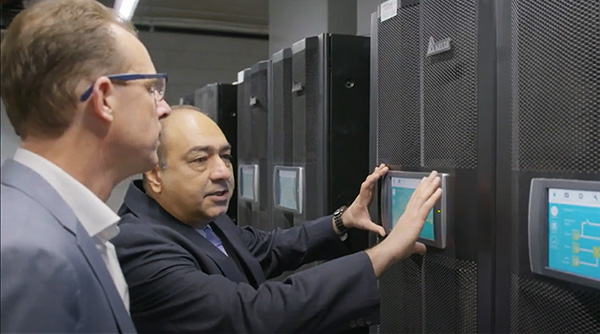
It’s a goal that Hans den Aantrekker, Operations Manager at Bytesnet, is particularly passionate about. With the help of Delta equipment, he’s making sure Bytesnet is at the head of the pack in the Netherlands when it comes to sustainable data processing.
Data centres: the backbone of the information age
Data centres are at the core of digital infrastructure. Not only do they provide data access and security, but they’re also the driving force behind cloud services, web applications, and data-intensive research. Data propels the modern world, from new technologies and medical advancements to social change.
Hans den Aantrekker has worked in the field of information communication technology (ICT) for over 20 years. He’s witnessed the industry’s rapid development first-hand. ‘Data centres are here to stay,’ he says, ‘We can’t get rid of them, but we can make sure our centres and equipment are efficient.’
‘At Bytesnet, we provide housing and colocation services—which means our customers rent equipment, space and bandwidth for processing data. We also offer infrastructure as a service (IaaS) and high-performance computing (HPC) cloud services, which are utilised for research,’ explains Hans.
‘Researchers need lots of data to analyse and predict real-world happenings. And they need to access it quickly. For example, we have researchers at our facilities working with data related to COVID-19. They’re doing important things like predicting how many people are likely to end up in hospital at a given time, as well as working on treatments and medicines.
‘Because data centres play such a significant role in modern society, it’s our duty to operate them in an environmentally conscious and efficient manner.’
‘Power loss is a part of this process and not all equipment is equally efficient. Delta’s UPS offers 98% efficiency, making it the most sustainable option for us.’ Hans den Aantrekker, Operations Manager at Bytesnet
Data requires a reliable control system
The data that’s processed at Bytesnet needs to be securely controlled at all times. The equipment needs to be up and running 24/7. And that requires a lot of power. But it’s necessary. Downtime can be disastrous for some clients, such as those active in the medical field. The only way to minimise the power usage is by installing efficient equipment.
Both the data centre in Rotterdam and Bytesnet’s site in Groningen rely on InfraSuite Manager, Delta’s data centre information management (DCIM) system for monitoring and managing data.
‘InfraSuite Manager gives us control of the entire data centre. It’s not practical or efficient to have people monitoring every data stream, all the time. But with Delta’s DCIM system, we automate parts of this,’ says Hans.
‘It’s universally compatible, user-friendly, and incredibly reliable. It also alerts us if our processing parameters aren’t properly met, so we can take immediate action. Plus, it generates reports. We can clearly see what we’ve achieved in terms of our cooling and power goals, and our promises to our customers.’
‘Delta is a huge company, but they operate like a local store. They know who I am and what my business needs. Even the General Manager knows my name. It’s quite phenomenal.’ Hans den Aantrekker, Operations Manager at Bytesnet
Sticking with Delta
Impressed by the functionality and efficiency of InfraSuite Manager, Bytesnet jumped on board when Delta recommended the DPH series 500 modular uninterruptible power supply (UPS) system.
‘UPS equipment needs to be constantly powered up and kept cool,’ explains Hans. ‘Delta’s UPS system offers the high capacity and power density we need, but it’s half the size of competing products. The small design means we fit more modules into less space. It’s the most efficient way to run things.’
Delta’s UPS system is also easily scalable, which is crucial. ‘Storing equipment that we’re not using is a waste of space and energy,’ says Hans. ‘Thanks to Delta, the only modules in our racks are the ones we need at this precise moment.’
‘The UPS is also responsible for converting power,’ he continues. ‘It takes alternating current (AC) and converts it to direct current (DC) to charge batteries, then converts it back to AC to go back into the equipment. Power loss is a part of this process and not all equipment is equally efficient. Delta’s UPS offers 98% efficiency, making it the most sustainable option for us.’
It’s not just the equipment that has Hans singing Delta’s praises. ‘They’ve helped us so much,’ he reports. ‘It’s a huge company, but they operate like a local store. They know who I am and what my business needs. Even the General Manager knows my name. It’s quite phenomenal.’
Designing data centres to go the distance
Technology keeps getting smaller, so for Bytesnet, future expansion isn’t about needing more space. Instead, it’s about offering new and improved services.
‘More data centres will keep popping up,’ Hans explains. ‘We need to go above and beyond simply providing housing and colocation services. Artificial intelligence (AI) and big data are things that not all customers are familiar with, but their use is skyrocketing. AI will determine many future processes and dependence on ICT will increase, making our society more vulnerable to cyberattacks. Digital security is essential. These are areas we can help our customers navigate. Anybody can provide rack space; we must make sure our customers also receive targeted guidance and services.’
With the world’s reliance on data increasing all the time, Bytesnet is focused on ensuring sustainability in every area of operation. ‘Data is the basis of the new world,’ states Hans. ‘It’s like gold in the modern economy. It must be managed sustainably. We have a responsibility to take care of this world for the people of tomorrow.’




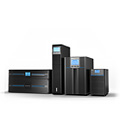
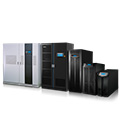
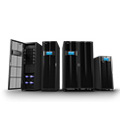
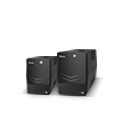
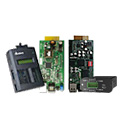

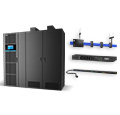
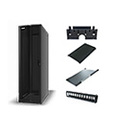
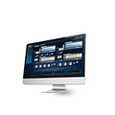
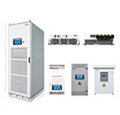
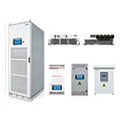

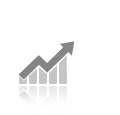










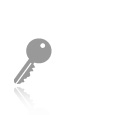



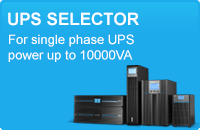
.gif)
